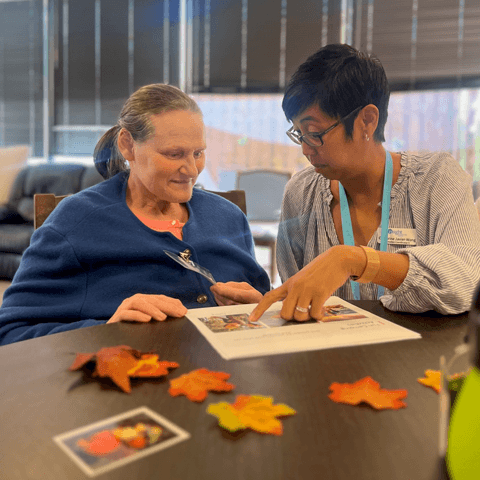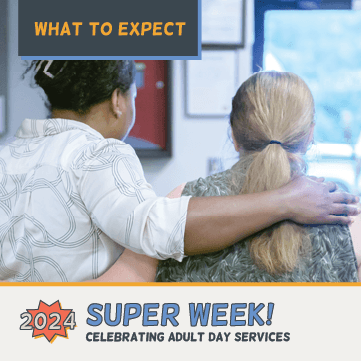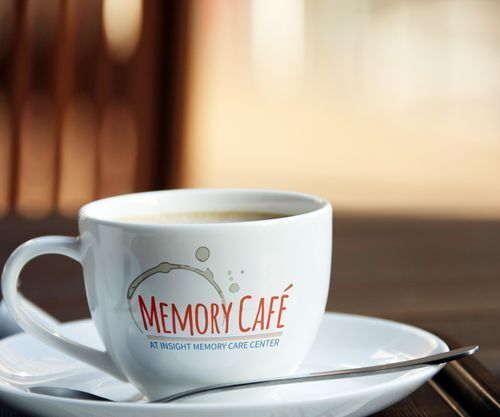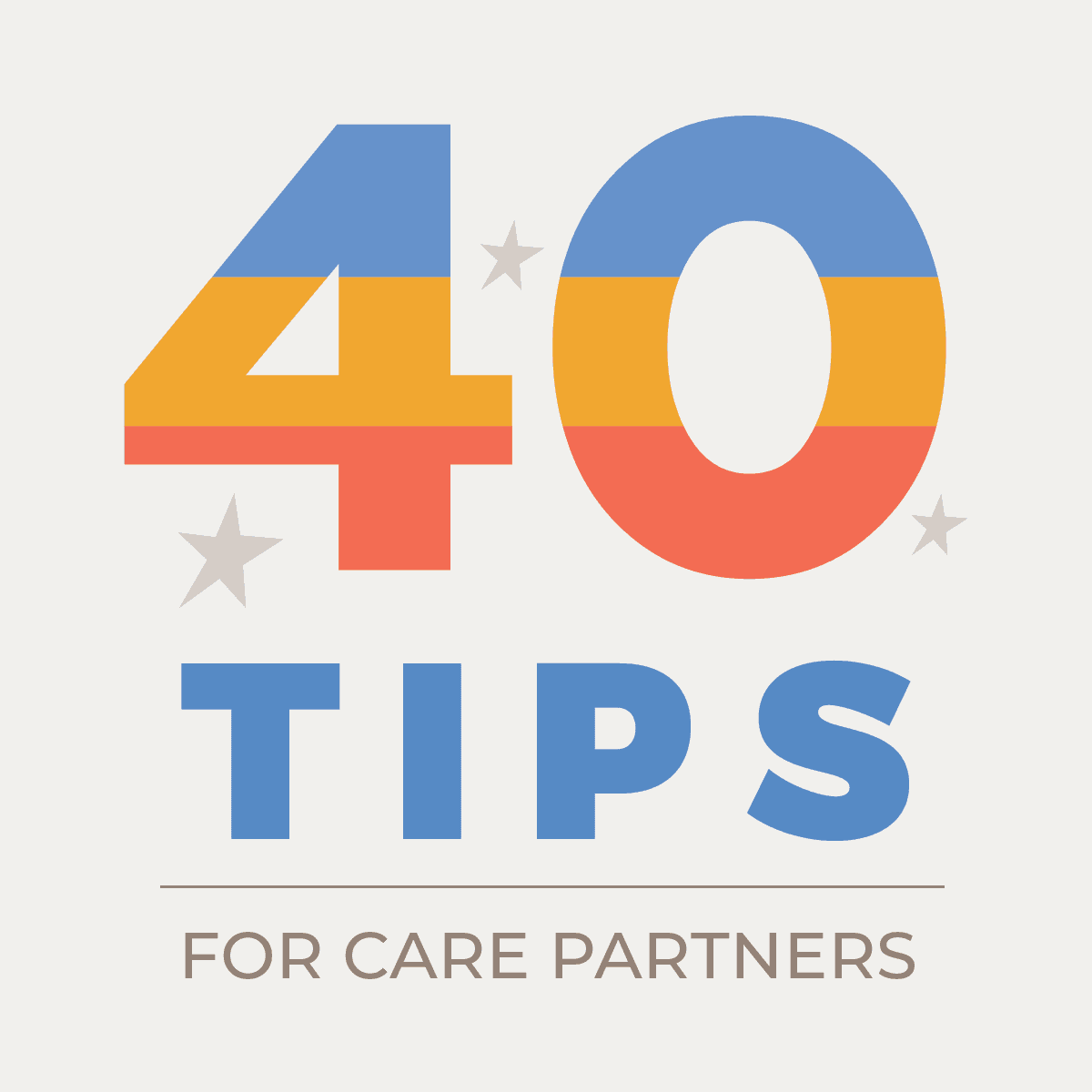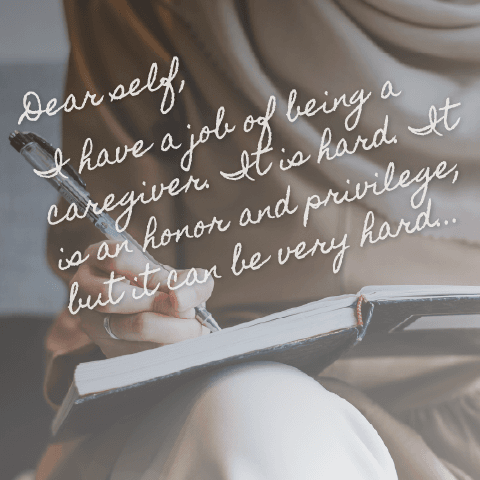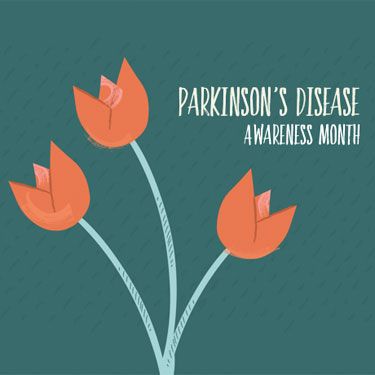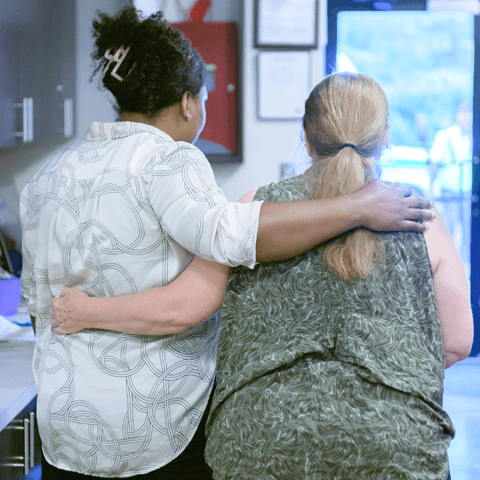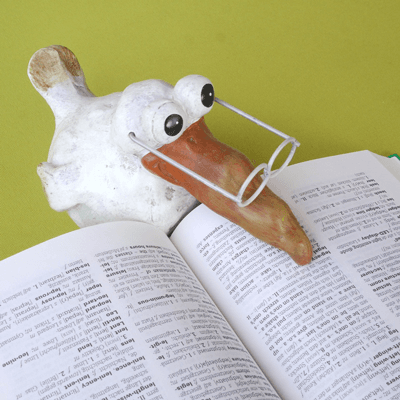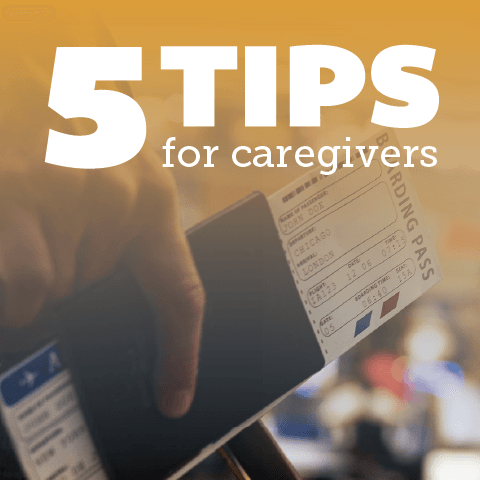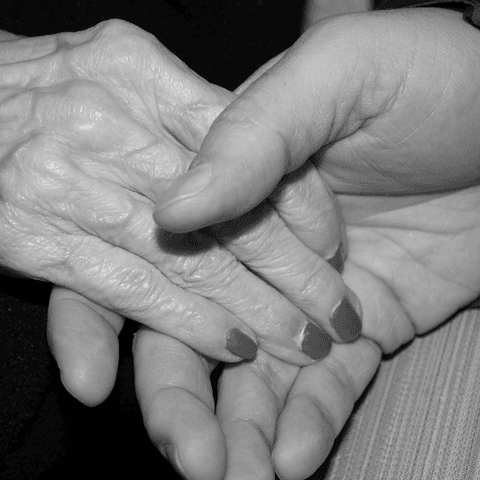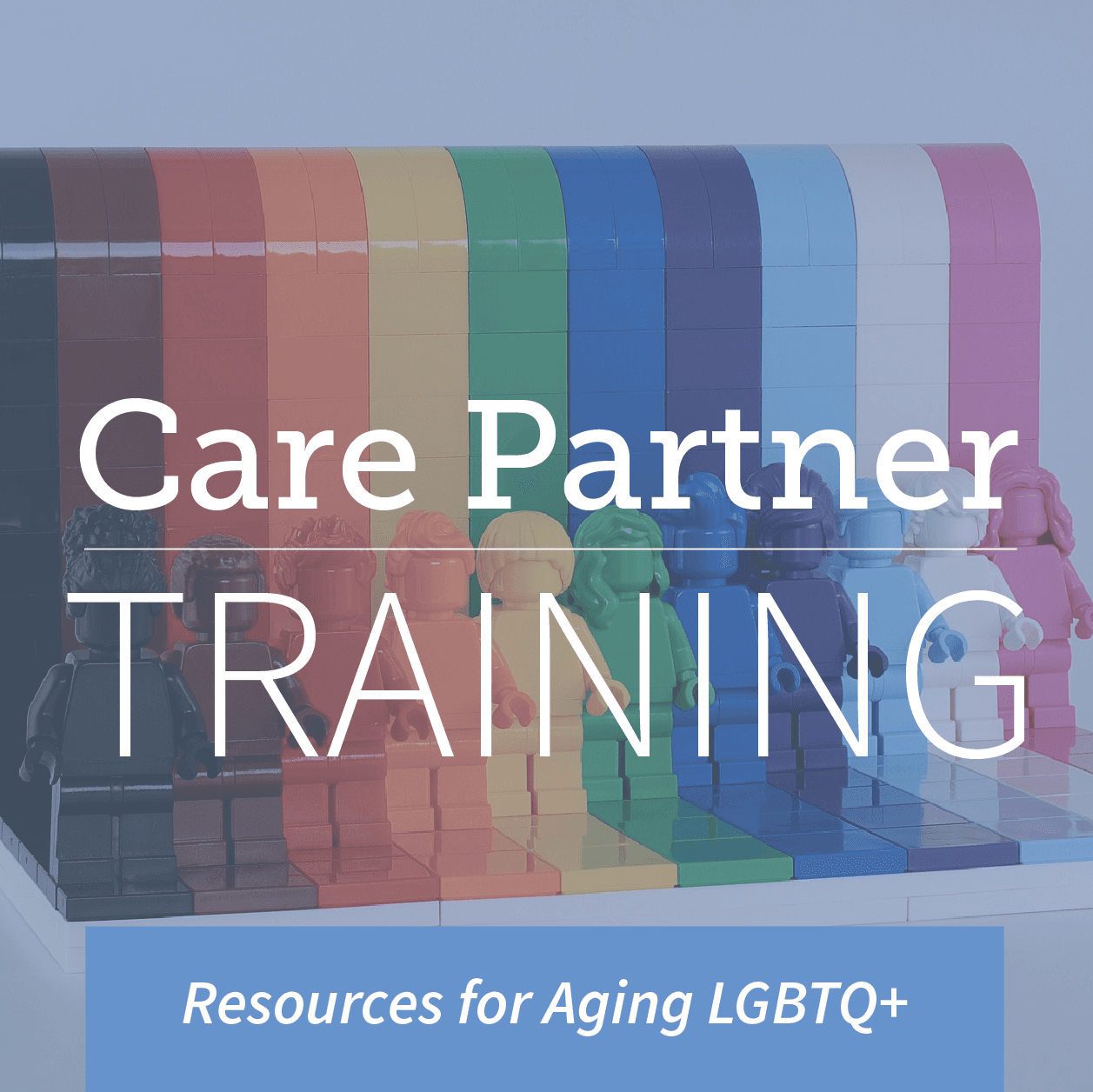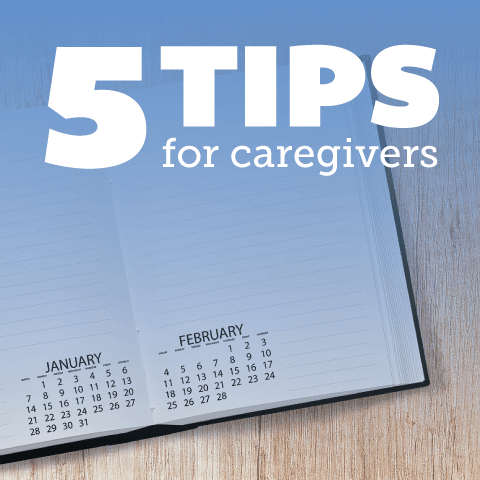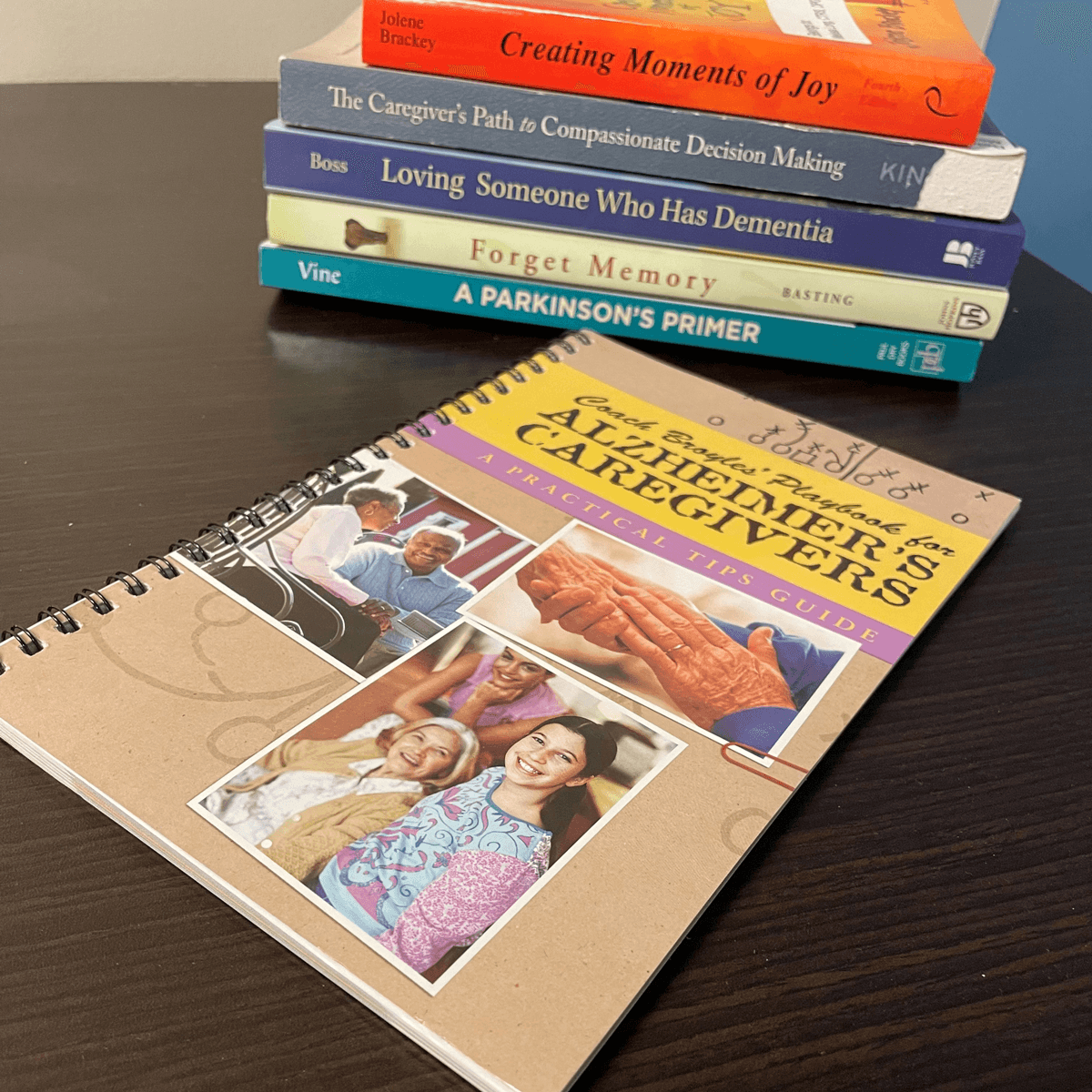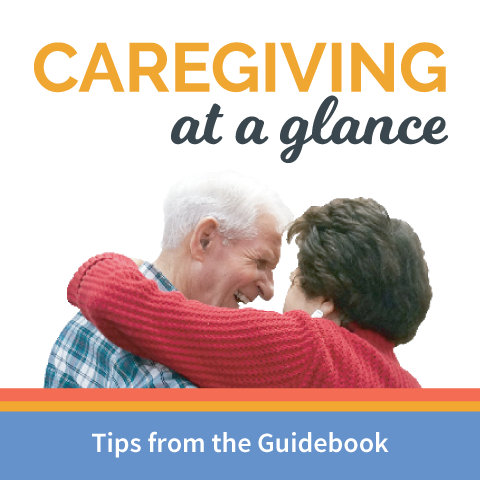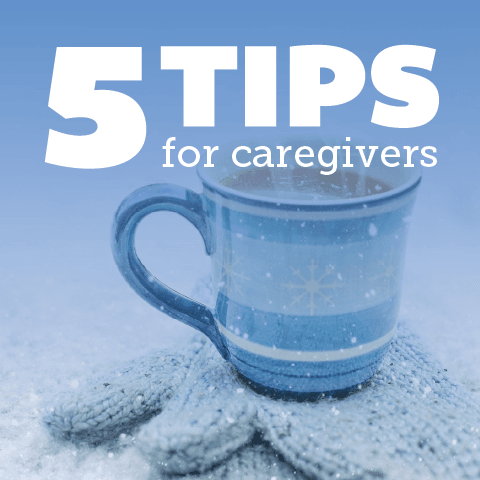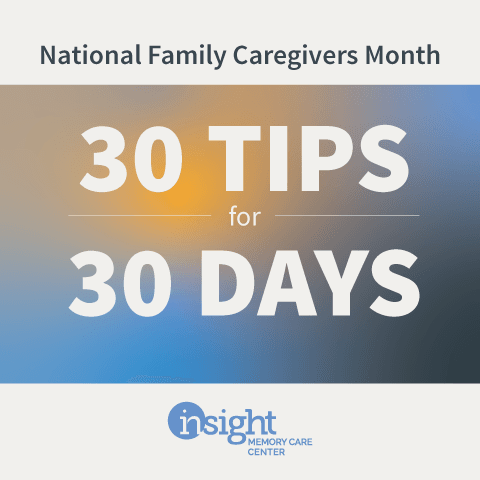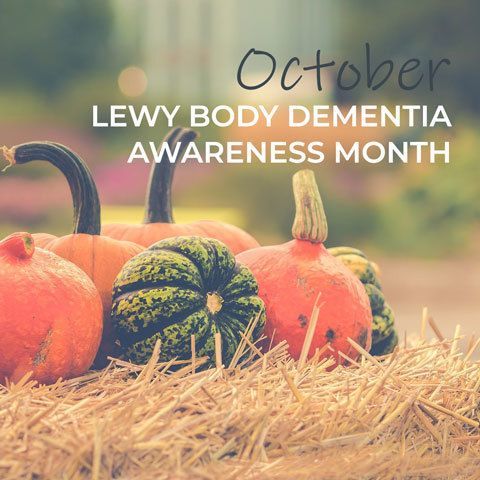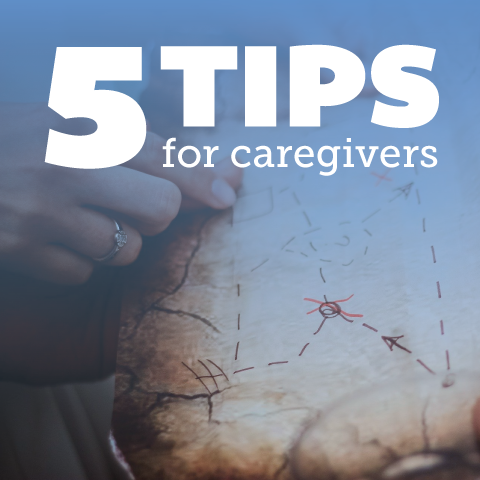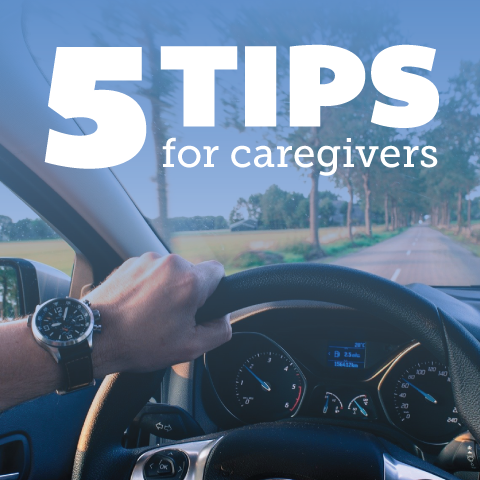Caregiving Tips
Holidays shouldn’t stop just because of a dementia diagnosis! If you’re visiting a close friend or family member with memory loss, the holidays can be poignant, awkward, funny, and everything else. Here are a couple of ideas to help ensure they are also a positive and joy-filled experience!
We have put together some gift ideas for someone who has dementia, including options for those at the beginning to the end stages of the journey. Great gifts can provide the individual to have more autonomy and independence, or just simple joys and ways to relax. We hope these will be helpful!
For a person with dementia, open ended questions can feel overwhelming. Offering choices can help guide conversations, and lead to further discussion and reminiscing. Try "would you rather..." to get your next conversation started! Read on to learn more and download printable conversation starters.
Holidays shouldn’t stop just because of a dementia diagnosis! We have put together some tips and ideas to help everyone have a positive and joy-filled experience.
Keeping a journal is a simple yet effective tool that can greatly improve the caregiving experience for those managing the care of someone with dementia. You’ll help not just your loved one, but yourself as well. Here are some things to consider!
Have you heard of Aging Life Care Managers? We are often called the “best-kept secret” in aging care, but that is changing for the better. More people are learning how Aging Life Care Managers can help older adults - particularly those with cognitive impairment.
You’ve completed the intake assessment, squared away the physical paperwork, and signed all of the enrollment forms. Your loved one’s first day at the day center is on the calendar! But now you're wondering: What will the day look like? How will my loved one do? It’s why we do what we do – to bring quality of life and moments of joy to our participants each day. The participant’s first day is where all these opportunities begin!
Having a good day as a caregiver can mean different things - here are some suggestions we have put together of things to keep in mind when it comes to setting up your day so you feel your best.
In the midst of the summer heat, it is crucial to highlight the significance of staying cool and hydrated, especially for older adults and individuals living with dementia. Here are a few tips to help keep older adults and those with dementia cool and comfortable this summer!
Summer is here, which for many of us means summer travel! Memory impairment adds a level of stress to taking a summer vacation, but whether you’re planning a day trip to visit family or a cross-country excursion, there are ways to minimize the anxiety. Here are a few tips to keep in mind for travel!
Many people have been to a café, and most are relatively familiar with the term memory – but have you heard of a memory café? Far from a restaurant that makes you memorize a long list of menu items, memory cafés are primarily social gatherings where individuals with memory impairment and their caregivers can join together in a safe, supportive environment, share conversation over a cup of coffee, or participate in fun, simple activities with the group. It’s an opportunity to meet with others for support, companionship, and fun - learn more!
Those hot summer days can feel longer without activities to keep busy and stay engaged! If you’re looking to make the most of the upcoming summer days in the DC Metro Area, check out this list of local dementia-friendly activities and outings we have put together.
The opportunity to become a caregiver for a loved one can bring you closer and come with many positive experiences. However, it can also be challenging and overwhelming! You have to deal with everything from how to switch a reversed sleep schedule to finding meaningful activities to fill the day. In honor of Insight's 40th anniversary here are 40 top tips from our Caregiving at a Glance Guide - one for each year of Insight!
Dear Self, I have a job of being a caregiver. It is hard. It is an honor and privilege, but it can be very hard. I do not always feel like I am doing enough, can I do more? I must remind myself that I can only do what I am capable of. I do not know everything, nor can I physically do everything. Just because others think I can or need to do more, it does not mean that it’s right for me or my person...
You are on a journey that not everyone will travel, and your journey is unique. I wanted to share a letter I wrote to myself that I thought might be helpful to you.
Parkinson’s disease is a neurodegenerative disorder that affects predominately the dopamine-producing (“dopaminergic”) neurons in a specific area of the brain called substantia nigra. Symptoms typically develop slowly over the years, and often include tremors, slowness and paucity of movement, limb stiffness, and gait and balance problems. We've compiled a resource list of programs at Insight and offered in partnership with the Inova Parkinson’s and Movement Disorders Center that might be beneficial. Take a look!
According to the Bureau of Justice Statistics National Crime Victimization Survey, in 2014, 2.6 million persons over age 65 were victims of identity theft. Learn more about how it happens, signs to look for, how to avoid financial abuse, and what to do next if it does happen to you.
You’ve completed the intake assessment, squared away the physical paperwork, and signed all of the enrollment forms. Your loved one’s first day at the day center is on the calendar! But now you're wondering: What will the day look like? How will my loved one do?
"Home care" and "Home health" are often used interchangeably, leading to confusion among families seeking the most appropriate support for their loved ones. While both services aim to enhance the well-being and independence of individuals in their homes, they differ significantly in their scope, focus, and requirements. Understanding these distinctions is crucial for making informed decisions that align with the specific needs of the individual. Read on to learn more!
It seems as though everyone makes New Year’s resolutions – eat healthy, clean out the house, exercise more, the list could go on and on. And despite our best intentions, these resolutions are usually out the window before we’ve even turned the calendar over to February. However, resolutions can be a great way to start off the New Year when you can keep them! Here are 5 resolutions for care partners that you can actually keep!
In Parts 1 – 6, I mentioned issues that Marie and I faced as we proceeded on this journey and I discussed the options we used to address them or overcome obstacles. Since we did not use every option available to us to take care of problems/needs as they arose and to give you a broader knowledge of the help that is available to you in caring for your loved one, we have compiled some resources and information that you may find helpful.
The holiday season often brings feelings of "guilt" for care partners. However, as we begin to be curious about these feelings of guilt, we begin to see this as something more than guilt - we begin to uncover grief, masquerading as guilt. Guilt and grief are both powerful human emotions, it is essential to understand their differences.
The holiday season is a time of new and old traditions, and sharing in the joy and togetherness of spending time with friends and family. But for families whose loved ones are diagnosed with Alzheimer’s or dementia, the holidays can be stressful and overwhelming; and for family care partners, often difficult to remember the joy that holidays can bring. We have put together some tips to help you experience this holiday season even with some new challenges.
Holidays shouldn’t stop just because of a dementia diagnosis! If you’re visiting a loved one with memory loss, the holidays can be poignant, awkward, funny, and everything else. Here are a couple of ideas to help ensure they are also a positive and joy-filled experience!
It's no secret that the worlds of healthcare and memory care can be full of confusing acronyms. While acronyms can help make communication more concise, a conversation full of them can also feel as if you are on the outside and unable to keep up! We have compiled a list of common acronyms you may come across as a care partner and what they mean.
It’s important to gather as much information from your doctor as you can. Asking the right questions can help you navigate your appointments and this journey. Check out a neuropalliative specialist's recommended list of questions to ask your neurologist.
Summer 2023 has been marked by record breaking heat so far. In the midst of the summer season, it is crucial to highlight the significance of staying cool and hydrated, especially for older adults and individuals living with dementia. Learn some important information and tips to help keep older adults and those with dementia cool and comfortable this summer.
Caring for a loved one with Alzheimer's or dementia can be all-consuming and any focus on self-care often shifts to ensuring our loved one’s needs are met first. It takes courage to ask for and accept help. Yet, asking for help is often a starting point on the journey of self-care. This care extends to our own healing as we grieve the loss of our loved one. The support of others, including Insight Memory Care, can be sustaining.
We can all use a helpful tip or two! Here are a few strategies that can be used to improve cognitive health and mental well-being for people living with Mild Cognitive Impairment (MCI) or dementia.
Summer is here, which for many of us means summer travel! Memory impairment adds a level of stress to taking a summer vacation, but whether you’re planning a day trip to visit family or a cross-country excursion, there are ways to minimize the anxiety. Here are a few tips to keep in mind for travel.
A big part of engaging in our programs is actually getting to the programs! You are of course welcome to provide your own transportation, but we know this may not work for every family situation. Here are a few door-to-door transportation options available in Northern Virginia to get here safely.
Our grief as caregivers can be so overwhelming. We may question ourselves “each day it feels like I am in persistent mourning, yet no death has occurred. I have lost loved ones to death before, so why now are my feelings as a dementia care partner so overwhelming?” Each day we may feel as if we are on a carousel of emotions - grief, loss, sadness, anger, joy, acceptance; a mixture of hope and despair, round and round we go. We must recognize the psychological impact of the ambiguous loss which accompanies our walk with our care person on this journey with dementia in order to begin to manage our unresolved grief.
Making important decisions for aging parents can be a challenging task, but Power of Attorney (PoA) can provide peace of mind and clarity in times of need. This article from Legacy Lawyers, PLLC will walk you through the different types of PoAs, why and when to consider a PoA, and how to choose a PoA.
When most people think of Parkinson’s disease, they think of a tremor. While movement symptoms are more noticeable, there are also cognitive changes that accompany the disease. During Parkinson's Awareness month, learn more and connect with resources from the Parkinson's Foundation.
Dementia gradually diminishes a person’s ability to communicate. Communication with a person with dementia requires patience, understanding and good listening skills. Learn more about effective communication strategies in dementia care.
Around 3 million LGBTQ+ adults are over age 50, and those that receive a dementia diagnosis face a particularly challenging set of circumstances. Many, including care partners, face disproportionately high levels of social isolation and stigmatization as they age, making it difficult to find support. Watch our recent webinar at take a look at the resource listing!
It seems as though everyone makes New Year’s resolutions – eat healthy, clean out the house, exercise more, the list could go on and on. And despite our best intentions, these resolutions are usually out the window before we’ve even turned the calendar over to February. However, resolutions can be a great way to start off the New Year when you can keep them! Here are 5 resolutions for care partners that you can actually keep!
Tuesday, November 29th is Giving Tuesday, a worldwide day of giving. You’ve probably heard of Black Friday, Small Business Saturday, and Cyber Monday as shopping days – Giving Tuesday is day to celebrate giving! We celebrated live on Facebook, LinkedIn, and YouTube all day – sharing resources, caregiving tips, advice, and stories. Check out the panels and presentations!
If you’ve been noticing changes in memory, for yourself or a loved one, making that first doctor’s appointment is a daunting step. Being prepared can help ease the stress and make the most of your time! Here’s what to bring, what to expect, and some questions to ask at your visit.
In the midst of summer, many of us reach for our favorite beach reads, looking forward to a few hours relaxing. However, as a caregiver for someone with memory impairment, those relaxing moments can be few and far between – and the few you have, that time is valuable! If you’re looking to make the most of your summer reading list, here are a few recommendations that we and other care partners have found helpful.
Many of us worry how seeing our grief affects our loved ones, especially as they may or may not still have the ability to process or comprehend the tragedy. It’s not possible to shield your loved one from everything all the time, so how can you best respond?
Memorial Day is just around the corner, which not only means the start of summer, but also the start of summer travel! Memory impairment adds a level of stress to taking a summer vacation, but whether you’re planning a day trip to visit family or a cross-country excursion, there are ways to minimize the anxiety. Here are a few tips to keep in mind for travel.
If you’ve had a loved one prone to wandering, you know how stressful this topic can be. The caregiver has to decide how much “freedom” a person with Alzheimer’s disease should have. At some point the person’s need to be safe will outweigh their diminished ability to decide where they want to go and when. Here are a few tips to ease wandering concerns.
With winter weather comes many things – a pretty dusting of snow, hot chocolate with marshmallows, and lots (and lots!) of indoor time. Freezing temperatures can easily make you go stir crazy, especially when trying to also care for and entertain a loved one with dementia. It’s easy to just default to watching TV all day, but by varying the types of activities you engage in, it really can still be the great indoors for everyone!
Receiving a diagnosis of dementia, or having a loved one diagnosed, can cause a range of emotions, from shock to relief. But what happens next? We’ve put together a checklist of things for you, your family, and support team to consider over the next few months (or more!) as you navigate your journey.
When holiday traditions have to be adjusted for a loved on with dementia, it can be hard to – well – adjust! With a few simple tweaks and managing expectations, the holiday season really can be enjoyable for everyone. Whether you
use a tip each day or unwrap them all at once, we hope these ideas can help you create a happy holiday season.
We celebrated Giving Tuesday this year by Getting Ready! We had four great panels and presentations as we shared more about getting ready for the holidays - and caregiving throughout the year! Watch and learn more about what to look for when visiting aging parents, ideas to enjoy the holiday season, and a sneak peek of our new Sterling space!
The opportunity to become a caregiver for a loved one can be a blessing and bring you closer. However, it can also be overwhelming! You have to deal with everything from how to switch a reversed sleep schedule to finding meaningful activities to fill the day. In honor of National Family Caregivers Month, here are 30 top tips from our Caregiving at a Glance Guide - one for each day of November!
Lewy body dementia is the second most common type of dementia, with an estimated 1.4 million Americans diagnosed. In honor of Lewy Body Dementia Awareness Month, we've put together a few resources, both at Insight and in the wider community that may benefit your family.
When a family member receives a diagnosis of dementia, it’s a huge puzzle to piece together. Our first thoughts usually focus on the person: How can we help them? How quickly might they progress? What kind of care are they going to need? But this is just the start of the puzzle; we often overlook the crucial caregiving piece! The family caregiver’s role is of vital importance. Caregivers have to take on many new roles— doctor, lawyer, financial planner, and caretaker—often not knowing where to start. Here are 5 tips for starting to build your caregiving skills.
When you hear the word “driving,” what comes to mind? Speeding down the open road, convertible top down, wind in your hair, driving off into the sunset? We’d all like to think of driving as idealistic, but in reality, it’s often more like stoplights, tailgaters, brake lights, and really just a necessity for getting to work and running errands. It is this commonplace driving situation that can become the most dangerous as dementia progresses. Delayed reaction times, poor judgment, inability to stay attentive behind the wheel, and frustration can be highly problematic in the stop-and-go traffic of Northern Virginia. So when is it time to stop driving?
Blog
"I like that IMCC focuses on dementia-related problems and provides a focal point for families to network and socially interact in coping with dementia. It provides a community that helps us in our struggle."







